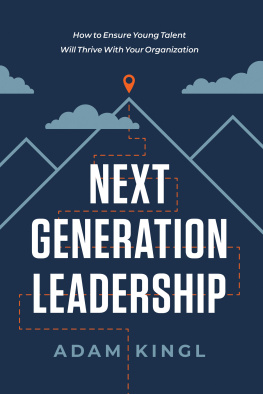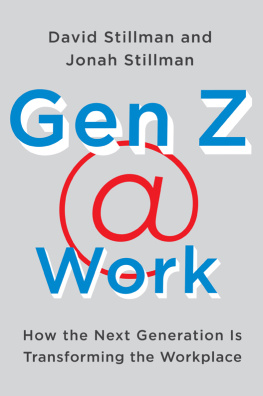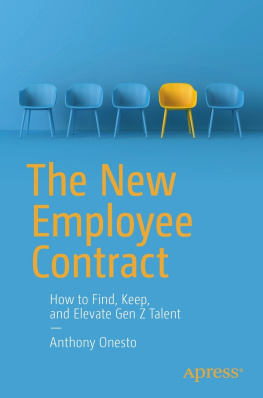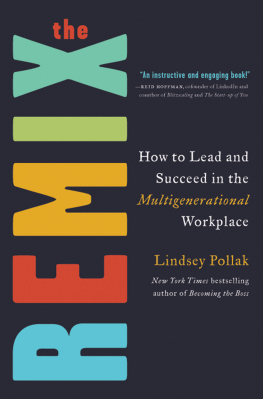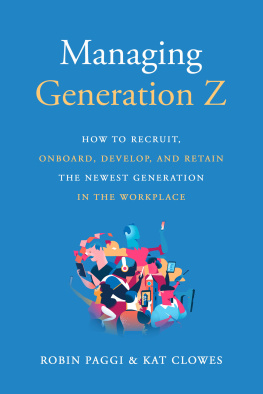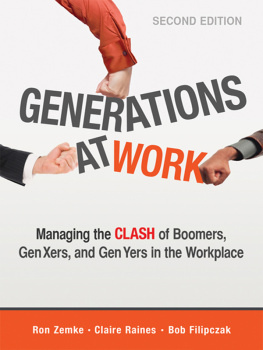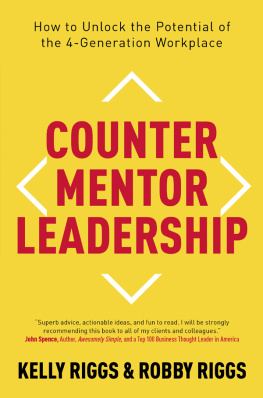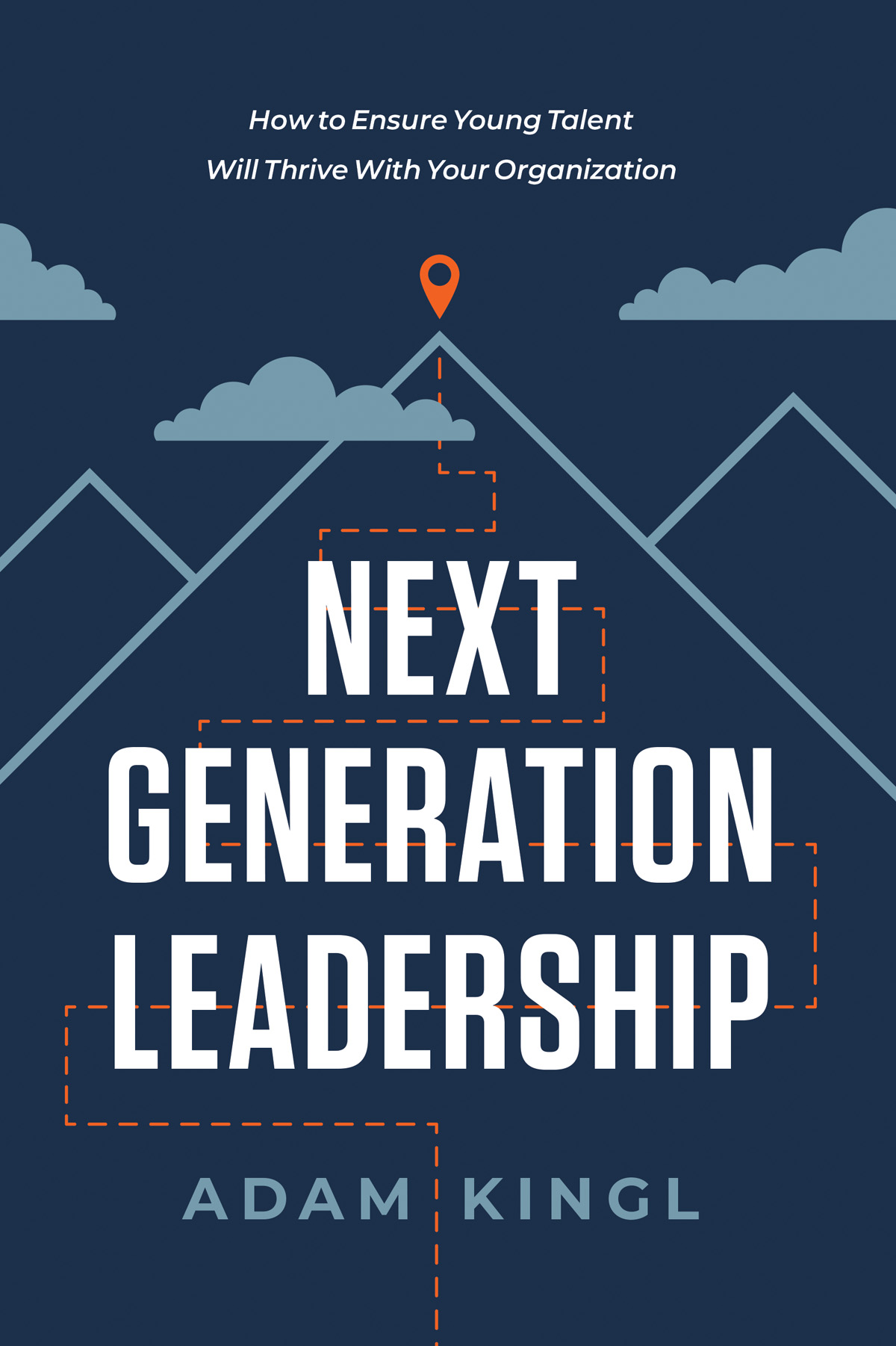2020 Adam Kingl
All rights reserved. No portion of this book may be reproduced, stored in a retrieval system, or transmitted in any form or by any meanselectronic, mechanical, photocopy, recording, scanning, or otherexcept for brief quotations in critical reviews or articles, without the prior written permission of the publisher.
Published by HarperCollins Leadership,
an imprint of HarperCollins Focus LLC.
Book design by Aubrey Khan, Neuwirth & Associates.
ISBN 978-1-4002-1561-4 (eBook)
ISBN 978-1-4002-1547-8 (HC)
Epub Edition December 2019 9781400215614
Library of Congress Control Number: 2019953545
Printed in the United States of America
20 21 22 23 LSC 10 9 8 7 6 5 4 3 2 1
Dedicated to the memory of my mother,
Sharon Marie Kingl, who taught me many things
but most of all the virtue of kindness.
Information about External Hyperlinks in this ebook
Please note that the endnotes in this ebook may contain hyperlinks to external websites as part of bibliographic citations. These hyperlinks have not been activated by the publisher, who cannot verify the accuracy of these links beyond the date of publication
CONTENTS
Guide
I n the last year, Ive had the opportunity to facilitate a number of strategic planning sessions for companies in a range of different industries, from construction management and advertising to biotechnology and healthcare. To facilitate means to make an action or process easy or easier, and my job would have been easier in all cases if this book was already available. Why? Well, each of the companies identified some variation of the theme of Next Generation Leadership as their top strategic priority. In essence, they all determined that attracting and retaining the best possible young talent was the most important key to their plans to grow, and they all realized that in order to do that effectively they had to evolve their culture to make it more appealing to the next generation. This book shows exactly how that can be done.
The word generation comes from the Latin root generre, meaning to beget. The word beget is usually used in reference to spawning offspring. Its used a lot in Genesis, but as the dictionary explains, It can be used to refer to anything that generates something elsefor example, an inspiration can beget a brilliant idea. Adam Kingls inspiration has generated this brilliant work, marrying careful research into generational change with incisive, prescriptive guidance on how to create an optimal culture for young talent to thrive.
This book will be required reading for all my clients in preparation for next years strategic planning exercises, not just because it is a practical, well-researched guidebook to helping the next generation thrive at work, but also because the book offers a lens into the future of work and leadership.
As an organizational consultant for more than forty years, Ive experienced the impact of generational change in corporations, large and small, firsthand. Ive worked with regional telephone companies in the aftermath of AT&Ts divestiture to help change bell-shaped heads and watched with delight as workplaces became more diverse and globally oriented, and less formal and hierarchical. One of my clients who had been a senior manager at AT&T and then Bell Atlantic, which then became Verizon, landed in Seattle, where he was asked to be CEO of a rapidly growing communications technology company. He contacted me in a panic and pleaded: Please get out here and help me figure out how to connect with these younger folks. Everyone has some kind of piercing, tattoo or mohawk. I feel like Ive landed on an alien planet. My client was anxious, but surveys show that the next generation will be the most anxious yet, based on their concern for our fragile environment and the uncertainty in the contemporary workplace. Kingls research makes it clear, for example, that with each generation, the number of employers doubles.
Fashions, jargon, and dress codes may change over time, but some things remain constantand one of those is the need for leadership. Skilled leaders meet people empathically and find a way to appeal to their deeper aspirations, hopes, dreams, and values. The good news is that these are evolving toward greater care toward people and planet.
Legendary economist and Harvard Professor John Kenneth Galbraith observed that great leaders all have one characteristic in common: the willingness to confront unequivocally the major anxiety of their people in their time.
Beyond anxiety about the environment and the pressures of changing jobs much more frequently than their predecessors, the next generation of leaders will also deal with what Kingl describes as the failure of our corporate philosophy of the last century, which he explains as short-termism and shareholder versus stakeholder orientation. Kingl makes a compelling case that the new generation of leaders are already reacting against this, and when they assume leadership of our companies, they may usher in a new golden age of the corporate sector working toward the better interests of their customers, employees, and society. This is critical because, as he points out, our companies are less innovative, agile, and inspirational than their individual employees. In other words, corporate life is less human than it could be.
We are at an inflection point. Previous generations of capitalists just assumed that the planets resources were unlimited and that the invisible hand of the market would, by focusing solely on shareholder return, provide prosperity for all. But those assumptions are being overturned by our emerging leaders, who, as Kingl shows with detailed research, are reshaping corporate values to be more ecologically astute and human-centered.
Commenting on the Business Roundtables recent headline-making declaration that the doctrine of shareholder primacy has outlived its usefulness, Johnson & Johnson CEO Alex Gorsky observed, It isnt an achievement, its a call to action. Adam Kingls Next Generation Leadership is a superb achievement, and its also a call to action, offering profound insights and guidance for emerging leaders and for leaders of the previous generations wise enough to avoid the depreciation of their own intellectual capital by engaging in the reverse mentoring process youll learn about in these pages. Kingl frames all this in the context of a big-picture shift from the shareholder primacy model to a more conscious, regenerative approach to capitalism, and he does so in a way that helps the reader feel engaged. He explains, Many great movements began with small changes, and then shows how you can begin making those changes now.
Michael J. Gelb
Author of How to Think Like Leonardo Da Vinci
Today we stand astride a fault line of how commerce may evolve in a global, interconnected society. Whats going on, and why now? If we take a very long view, we can observe that capitalism, and its role in society, is challenged and reinvented every one hundred to five hundred years. Feudalism, between the ninth and fifteenth centuries, was replaced by mercantile capitalism, which made way for industrial capitalism in the mid-nineteenth century, which evolved into shareholder capitalism in the twentieth. Capitalism has certainly not been a stagnant system.
When we look even closer, we not only see capitalism as we know it challenged, we must recognize that capitalism today does not manifest in just one form. Scandinavian capitalism certainly looks different from Anglo-Saxon capitalism, yet has created great productivity and social and economic stability; the Scandinavian economies very successfully navigated the last financial crisis. Yes, their citizens pay significantly more taxes than in the United States, but they enjoy a social safety net that reduces both economic and social anxiety. Nordic countries enjoy a healthy work-life balance with longer holidays and shorter workdays. As a result, Finland, Norway, Sweden, and Denmark almost always appear atop the happiest countries of the world tables.

